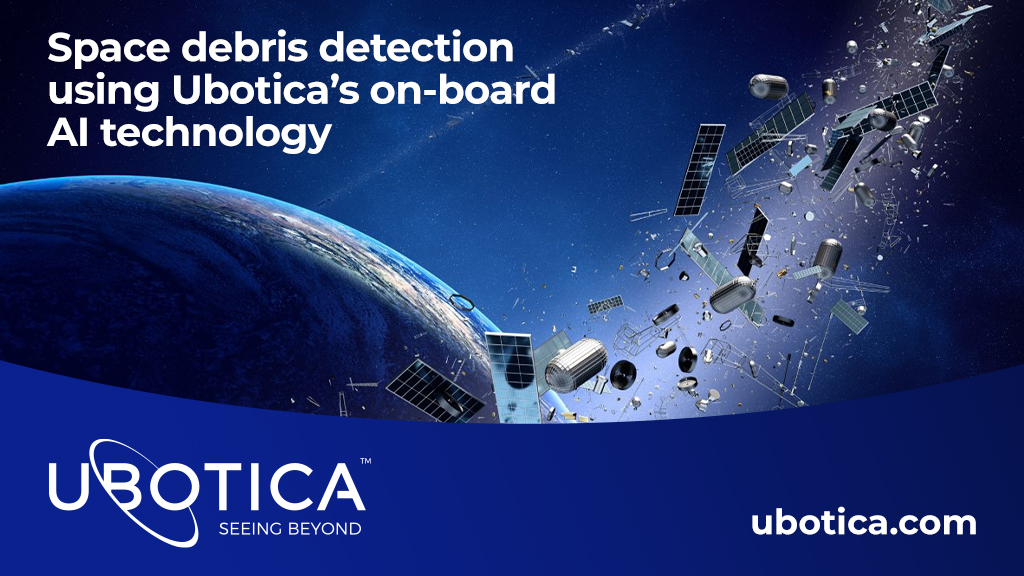Breakthrough in Space Debris Tracking with Edge AI

Based on the recently announced CogniSAT-XE2, the European Space Agency, ESA, has published a report from Vyoma and Ubotica describing the successful demonstration of space debris detection using on-board AI technology.
The complete report is available from the European Space Agency at this link:
Extracts from the report follow:
…
Context
…
With the increasing number of resident space objects (RSOs), the ability to accurately track and catalogue these objects becomes more difficult. Space-based Space Surveillance (SBSS) systems can overcome the limitations of ground-based systems by providing a scalable solution and increasing the accuracy of RSO catalogues. However, these systems can be limited by the capacity to downlink the large amount of data generated on-board.
This study addresses this issue by reducing the data at the sensor level, through the use of Computer Vision (CV) enabled by onboard Artificial Intelligence (AI) accelerators. Results obtained confirm the feasibility of such approach, with remarkably high detection rates, even at low signal-to-noise ratios.
…
The Partners
…
Vyoma is building Europe’s first commercial Space-Based Surveillance System (SBSS) with the goal of building up an independent high-accuracy debris-object catalogue for the Low Earth Orbit (LEO) regime and improving upon existing object catalogues to provide real-time space domain awareness across all orbit regimes. Ubotica’s AI acceleration technology is one of the key enablers that will make our vision a reality.
…
Operational Efficiency
…
Vyoma’s SBSS mission viability needs to be approached with a focus on minimising operational costs. This can be achieved by optimising dump operations, either prioritising images with detected objects, or reducing the data on-board. By doing this, the mission can reduce power consumption during data dump contacts, shorten dump contacts, or downlink less often.
…
On-board processing is also an enabler of higher operational autonomy, reduces complexity in ground operations and infrastructure, leading to cost savings. Additionally, streamlining payload operations such as calibration and on-board software updates will help to optimise the mission and ensure its success.
…
Conclusions
…
In conclusion, the objectives set at the beginning of the study have been achieved. An hybrid edge-cloud astrometric reduction pipeline has been designed, tailored to the specificities of Vyoma’s upcoming SBSS mission, enabling a cost-effective way to handle the large amount of data that is expected to be generated on-board, while reducing the latency of SSA products delivery.
…
Overall, the combination of Ubotica’s technology and proficiency in edge computing and AI acceleration, together with Vyoma’s expertise in SBSS development and ML resulted in a successful formula to advance in Europe’s space situational awareness autonomy capabilities. This will have numerous benefits, including increased safety for satellites and spacecraft, sustainability of the orbital environment and operations, as well as improved space situational awareness for all stakeholders.
…
Ends
These extracts are from the report which is available from ESA at this link:
About Vyoma – https://www.vyoma.space/
Vyoma is building the operating system of space. With cameras on satellites paired with ML-supported automation services, Vyoma ensures real-time mapping of space objects and safe satellite operations. In short, Vyoma provides the critical infrastructure needed for satellite safety as our orbits get 10-100x busier in the next decade.
A young and agile company based in Germany, Vyoma combines more than a century of expertise in space surveillance with our team and advisory board, all brought together by a passion for space sustainability. Vyoma caters to satellite operators, space reinsurers, defense, and governments across the world.
About Ubotica
Ubotica is at the heart of semi-autonomous satellite systems that provide real-time insights from flexible on-board processing and that use affordable, low energy hardware. The Ubotica CogniSAT platform was developed with deep insight of processing hardware, computer vision software and AI system integration. CogniSAT technology has already been proven in multiple space flown projects with partners in Europe and the USA, including NASA JPL and the European Space Agency (ESA).
